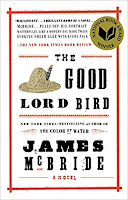---------------------------------
Now on to our main topic: Elizabeth Hemings's mother was, according to Madison Hemings, "a full-blooded African, and possibly a native of that country." In Madison's telling, she gave birth to her daughter and moved into the plantation household under her master's orders when Captain Hemings planned to kidnap the baby. That's really all Madison relayed about her. No name, no background, no story of what became of her, not even an indication that the Captain planned to purchase or to kidnap her along with her daughter. Indeed, quite the contrary since Madison mentioned "parting mother and child" in describing the proposed sale of Elizabeth and only the kidnapping of "the child," a plan thwarted by the "leaky fellow servants of the mother." Madison keeps mother and daughter separate through this section of his history.
Considering all of this, what function does she serve in his account? For this post, I will focus on this:
Elizabeth's mother establishes an African ancestry, which appears important to Madison. He was the only one of the children of Thomas Jefferson and Sally Hemings to claim that ancestry and trace the family's arrival from two continents. By the twentieth century, even his brother Eston's descendants conspired to hide its African origins even as they claimed their Jefferson lineage. Here is an interview with one of those descendants, Julia Jefferson Westerinen, explaining how her black ancestry was hidden from her as she was growing up. (Part of the "Getting Word" oral history project at Monticello.):
I also think that remembering Elizabeth's mother as "of that country" Africa* serves another purpose here. "Country" suggests a nationality or nationalism that informed western political movements at the time Madison relayed his family history in 1873. Think of the unification of Germany and Italy, or of the later patriotism of the U.S.'s Spanish-American War, or of the long-term causes of World War I. Whether he was conscious of this or whether this is my latter day historian's interpretation alone, Madison participates in a type of Afrocentric thinking here that emerged from the creation of an African-American consciousness.
Remember that the institution of slavery created race in the United States, sorting people into "white" and "black" and negotiating those who were neither into conditional membership in one or the other. This had little relationship to the history Africa suffered at that particular moment in time, which is a whole other chapter in our Western Civilization textbook, but that part doesn't figure into the Hemings story here. The part that does figure into the story is that Madison sees himself as both a product of that fusion of people from African who did not share a common identity while also projecting it both back into his great-grandmother's origins and across the ocean. His great-grandmother came from a country of dark-skinned people just as his grandfather, "John Wayles, a Welchman,"came from Wales or Captain Hemings came from England, places of light-skinned people.
Given the ambivalences that he expresses throughout his narrative, I wonder about his sense of place, nationalism, or patriotism in the United States. I wonder also what he is saying about race here. Is he saying that it is all the same, that Wales, England, Africa, they are all countries or nations equally? He, the descendant of both, should be equal? He, a descendant of Africa, does not appear to be so? He connects Jefferson to Africa implicitly as he tells this story, and he seems to have mixed feelings about Jefferson (a topic for another time).
Whatever textual reading you make of this, Africa ultimately exists long ago and far away in Madison's story. So much so that, but for his story it could have disappeared from his family altogether.
In Lose Your Mother, Saidiya Hartman describes an undershrub favored by slave traders as a drug for their captives:
Manta uwa made you forget your kin, lose sight of your country, and cease to think of freedom. It expunged all memories of a natal land, and it robbed the slave of spiritual protection. Ignorant of her lineage, to whom could the slave appeal? No longer able to recall the shrines or sacred groves or water deities or ancestor spirits or fetishes that could exact revenge on her behalf, she was defenseless. No longer anyone's child, the slave had no choice but to bear the visible marks of servitude and accept a new identity in the household of the owner. (p. 157)The name of that shrub, manta uwa, "means 'forget mother' in Hausa." Hartman tries to find her mother, or rather, many mothers, in the course of her book, moving backward along a route similar to one that Elizabeth's mother likely took toward Virginia. So little of Elizabeth's mother's story, of her self, survived that journey, down to today. Whatever was shed of her story between the people who remembered the living woman and Madison's knowledge, Madison seems to make sure to retain what remained. She left a trace.
----------
* No, students in my world civilizations classes, Africa is NOT a country and do not use Madison as an excuse for saying so or I will send you to Prof. Odhiambo and she will set you straight in ways that you will not soon forget. Although, you may learn quite a bit in the process.

No comments:
Post a Comment